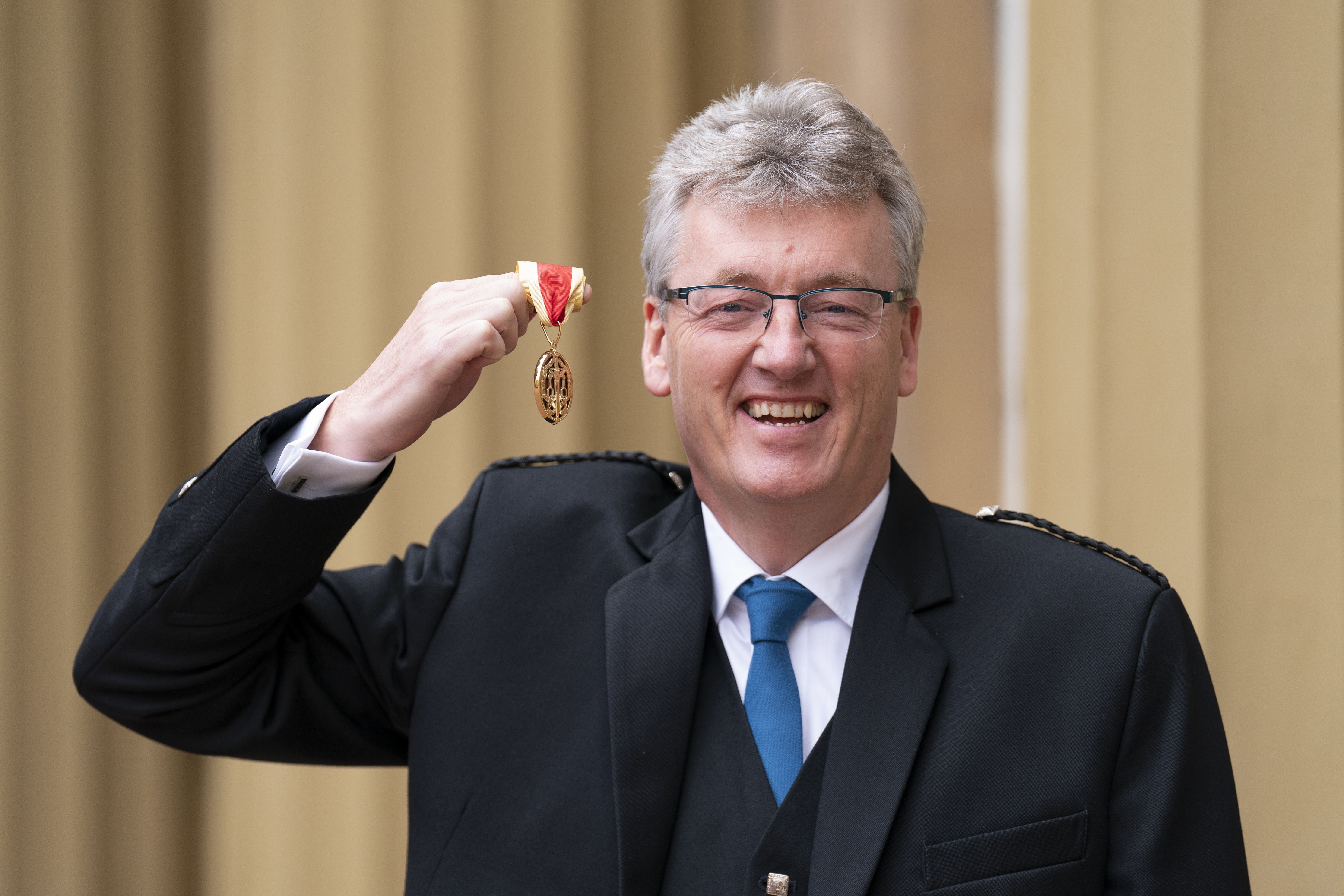Nobel Prize winning chemist knighted at Buckingham Palace
Professor Sir David MacMillan shared the prize with German scientist Benjamin List.

A British chemist has received his knighthood at Buckingham Palace more than two decades after he made the breakthrough that won him a Nobel Prize.
Professor Sir David MacMillan was awarded the Nobel Prize in chemistry in 2021 for developing “asymmetric organocatalysis”, a breakthrough that allows chemists to come up with new ways to put molecules together. He shared the prize with German scientist Benjamin List.
His discovery happened 20 years ago while he was an early-career academic.
“It was an amazing moment. I remember going into my office, closing the door, shutting the blinds and then jumping up and down for about five minutes,” he told the PA news agency.
“In America, at the start of your career, you have six years to get tenure, and if you don’t get tenure then you don’t keep your job.
“I remember calling my wife and saying, I think I’m going to get tenure.”
Sir David lives in Princeton, near New York, and works at Princeton University.
“I came back to get my knighthood but also to watch some of the football,” he said.
Originally from Bellshill in North Lanarkshire, Scotland, he attended local state schools before getting his undergraduate degree at the University of Glasgow.
In 2021, he told the BBC that being Scottish helped him win the Nobel Prize, saying he was “very, very proud” of his “working class” Scottish upbringing.
“I’ve been knighted today for services to chemistry and science, because I helped to invent a new way of doing catalysis, which is a process in chemistry,” he said.
“That discovery has allowed people to develop new ways of making pharmaceuticals and materials in ways that are cheap and sustainable.”
“I spoke to the Prince of Wales about using chemistry to help get plastic out of the oceans, which is something he was very interested in, and which I think our discovery provides a real hope of doing,” Sir David said.
“We’ve been connecting with students all over the UK to show young people how amazing a career in science can be,” he added.
“We used the Nobel Prize money to start a charity that helps underprivileged kids in the UK get into university, or stay in university. We’re very proud to be playing a part in making a change.”
Bookmark popover
Removed from bookmarks